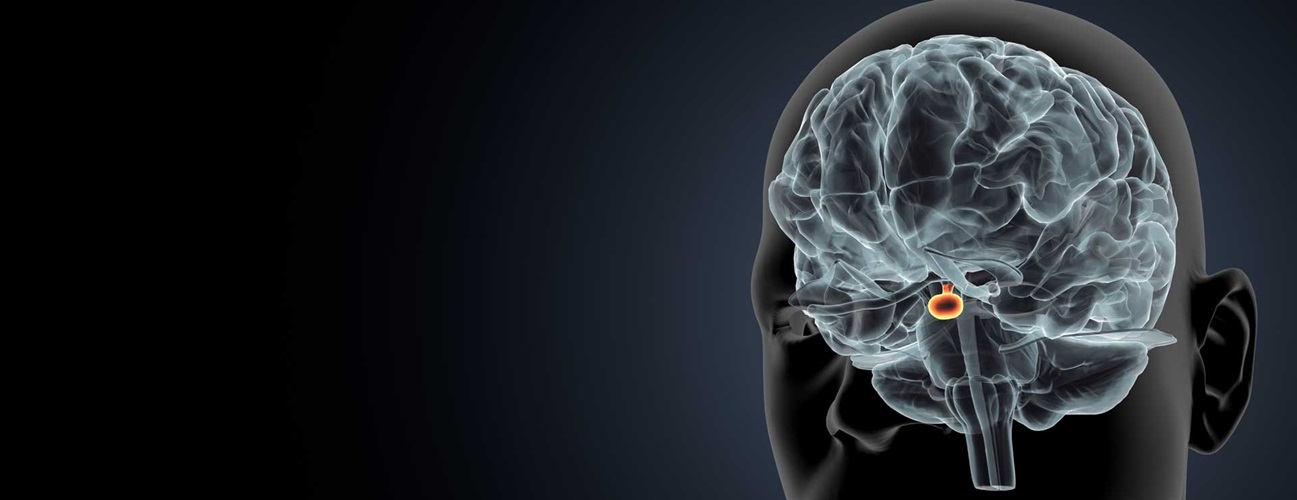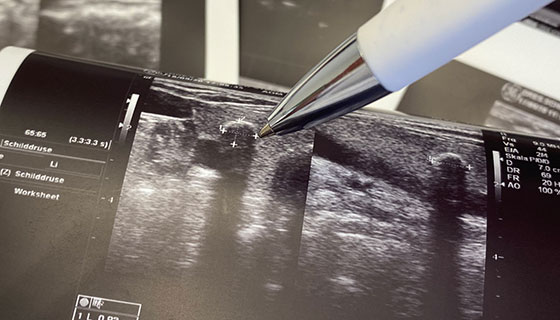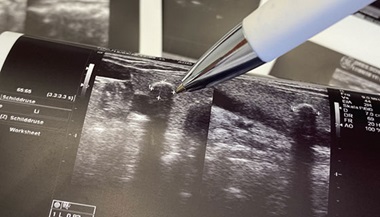Disorders of the Pituitary Gland
Overactivity and underactivity of the pituitary gland, a pea-sized gland on the underside of the brain, can cause a range of disorders.
What You Need to Know
- The pituitary gland, sometimes called the “master gland,” produces hormones that enable other glands in the body to function.
- Pituitary gland disorders include acromegaly, Cushing’s syndrome, diabetes insipidus, empty sella syndrome, hypopituitarism and pituitary tumors.
- Pituitary problems can be caused by pituitary tumors, most of which are benign.
Pituitary Disorders
Pituitary conditions can affect sexual development, thyroid function, growth, skin pigmentation and adrenal function.
Acromegaly
Acromegaly occurs when a pituitary tumor produces excess growth hormones. More than 95% of acromegaly cases are caused by benign tumors on the pituitary gland.
Cushing’s Syndrome
Cushing’s syndrome occurs when a pituitary tumor produces excessive amount of a hormone called ACTH, which elevates blood cortisol levels.
Diabetes Insipidus
Diabetes insipidus results from insufficient production of ADH, a hormone that helps the body conserve the optimal amount of water. Diabetes insipidus is not related to diabetes mellitus, although some of the symptoms are similar.
Empty Sella Syndrome
Empty sella syndrome is characterized by an enlarged bony structure that houses the pituitary gland at the base of the brain. Symptoms, if they are present, can include impotence, reduced sexual desire and irregular menstruation.
Hypopituitarism
Hypopituitarism, also called an underactive pituitary gland, affects the function of the anterior lobe of the pituitary gland. Hypopituitarism can have impact on hormone production in the adrenals, thyroid, testes or ovaries.
Tumors
Most pituitary tumors are benign. However, because of the location of the pituitary gland, large pituitary tumors can press against the optic nerves, causing vision problems. In addition, pituitary tumors that produce excessive amounts of hormones overstimulate other endocrine glands and cause symptoms.
The most common hormone produced by pituitary tumors is prolactin. Prolactin-producing tumors (prolactinomas) are more frequent in women. They can cause irregularity or loss of periods, infertility and breast milk secretion. In men, excessive prolactin can cause reduced libido and erectile dysfunction.





